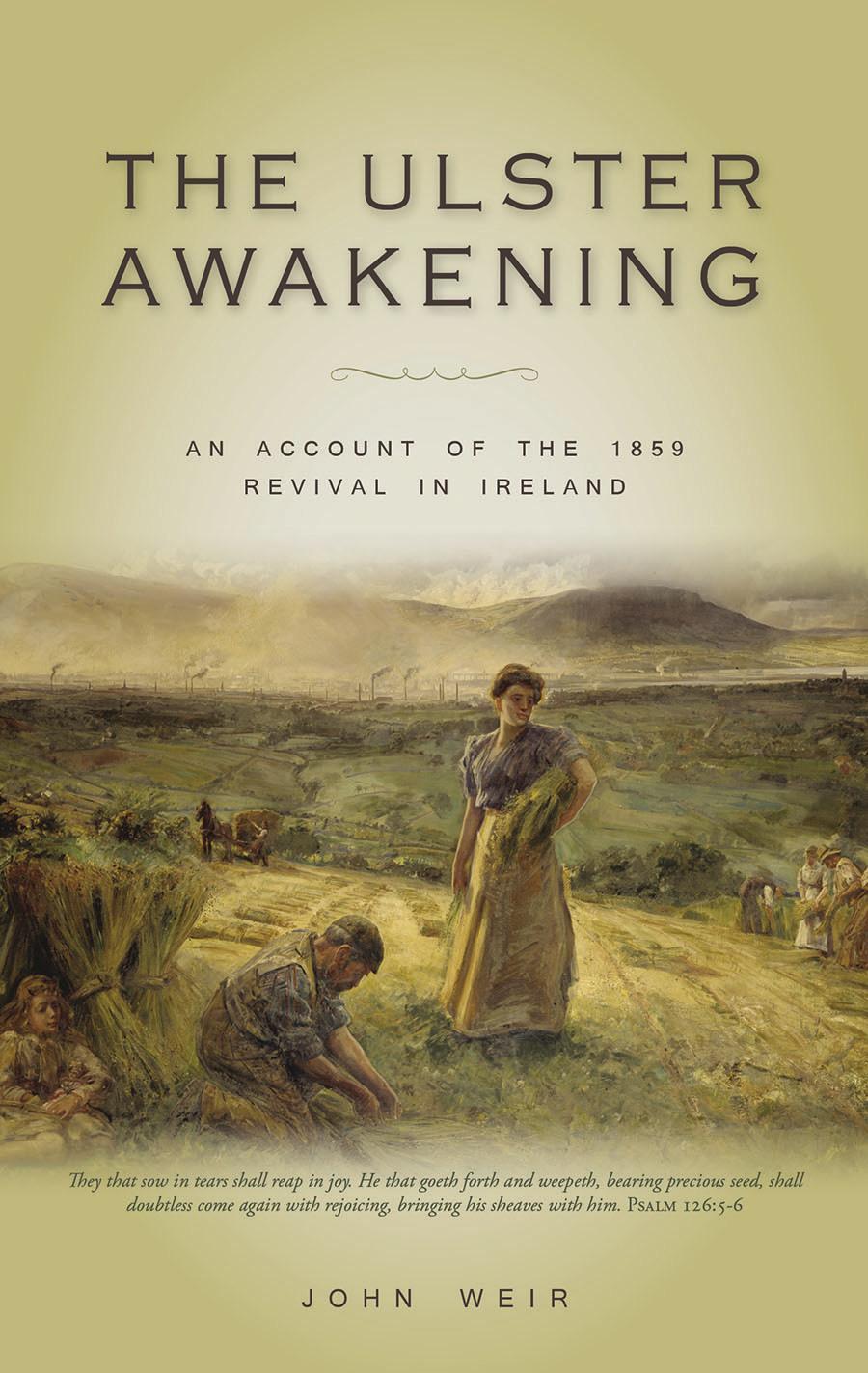The Ulster Awakening – A Review by Mostyn Roberts
John Weir’s book was first published 1860, and now has been reprinted by the Banner of Truth.* There is plenty to warm the heart in this account of the Ulster Awakening of 1859.The author was an Irish Presbyterian minister who spent time in Northern Ireland during the revival and compiled the book from his own careful observations and those of numerous other witnesses.
There were remarkable features about the awakening in Ulster, some of which distinguish it from other revivals that I, at least, have read about.
- The prominence of prayer, not only inspired by God prior to the revival but among new converts as prayer meetings sprang up all over the country. ‘It has been pre-eminently, as in America, a work of the people themselves, and has manifested its power chiefly through the instrumentality and by the desire of prayer’. Again, ‘…prayer is the grand characteristic, the life and essence of the Irish Awakening’.
- Although preaching was at the heart of the revival there is not the prominence of ‘preaching stars’ that one reads about in other revivals. It is quite different in emphasis in this regard from the history of the Calvinistic Methodist Fathers in Wales, where revivals tend to be tied to a succession of greatly gifted preachers. Ulster saw the great use of many men of otherwise ordinary gifts.
- The widespread use of testimony and fellowship meetings and use of the ‘lay’ people. There are many accounts of people being converted not through preaching as such but through testimonies.
- The physical effects and manifestations which were not central but three points stand out: (a) they provided opponents with an easy target to criticise; (b) they needed to be explained and occasional abuses disowned; (c) by far the majority of leaders of the revival were sober in their assessment of these manifestations, realising they were inevitable adjuncts to genuine spiritual distress or joy but were not to be encouraged. Although they were open to abuse they did not call into question the genuineness of the movement. One interesting section of the book discusses the positive role these physical effects had in sobering some crowds and contributing to the conviction of careless hearers.
- The unity between evangelicals in the major denominations – Presbyterians (among whom the greatest work was seen), Episcopalians, Methodists and Baptists worked together.
- Reconciliation between foes and an end to sectarianism – the end of provocative Orange celebrations in many places.
- Widespread conversion of Roman Catholics.
- Profound social effects – the reduction of drinking, prostitution and crime on a wide scale.
- A widespread and lasting work among youth and children.
John Weir makes the interesting and important observation, lest we think that God works differently with souls in times of revival, that
It is of great practical importance to observe, that the work of the Spirit on the soul of every individual convert is substantially the same with that which takes place – but only on a more extended scale – in a general Revival of religion. When many are suddenly arrested and convinced, when conversions take place in large numbers, and are attended with remarkable circumstances, the work of the Spirit attracts more of public attention…but, substantially, it is the self-same work, which has often been carried on, in silence, in the secret chamber, in the retired recesses of the heart, when one poor sinner in a congregation has been singled out…and made the subject of a saving change.
Of the Revival’s genuineness, one commentator said:
On what…do I found my conviction that this work is divine? I answer, on the fact that I have found every one of the blessed effects which are represented in Scripture as being peculiarly the fruits of the Spirit. Everyone who has taken but a cursory glance at the work, has noticed the conviction of sin – sharp, and penetrating, and deep; and everyone who has at all looked beneath the surface has seen how the persons thus impressed will hear of only one object. Talk to them of anything else, very possibly they will not understand you – certainly they will feel no interest in what you say; but speak of Christ, and their attention is gained and their heart is won. This has always been to me an evidence that the work is a genuine one, as it so powerfully draws men’s regard to our blessed Saviour.
Read this book and be stimulated to further prayer for God’s great work in our own day.
Notes

The Ulster Awakening
An Account of the 1859 Revival in Ireland
Description
John Weir’s book was first published 1860, and now has been reprinted by the Banner of Truth.* There is plenty to warm the heart in this account of the Ulster Awakening of 1859.The author was an Irish Presbyterian minister who spent time in Northern Ireland during the revival and compiled the book from his own […]
Taken with permission from the Revival Newsline of the Reformation and Revival Fellowship.
Latest Articles
Finished!: A Message for Easter March 28, 2024
Think about someone being selected and sent to do an especially difficult job. Some major crisis has arisen, or some massive problem needs to be tackled, and it requires the knowledge, the experience, the skill-set, the leadership that they so remarkably possess. It was like that with Jesus. Entrusted to him by God the Father […]
Every Christian a Publisher! February 27, 2024
The following article appeared in Issue 291 of the Banner Magazine, dated December 1987. ‘The Lord gave the word; great was the company of those that published it’ (Psalm 68.11) THE NEED FOR TRUTH I would like to speak to you today about the importance of the use of literature in the church, for evangelism, […]
